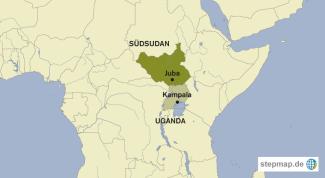Information technology
Tech training at Rhino Camp

Richard Maliamungu, a refugee from South Sudan, is a long-term resident of the camp. In 2018 he participated in a “training of trainers” workshop offered by the Access to Skills and Knowledge Network, or #ASKnet, an initiative of the Berlin-based non-profit Agency for Open Culture and Critical Transformation.
The training involved how to use the modest cache of locally available materials to create rudimentary electronic devices, and how to make faulty devices work again. The training also focused on connecting online with other innovators to acquire skills and expertise.
In addition to skills, the workshop gave Maliamungu an inspiration: Electronics innovation and repair would become his life’s work. “Since I was a kid I loved electronics,” he says. “I loved connecting things. For example I would get batteries and connect them with LED lights.”
Maliamungu quickly put his new knowledge to work: “All I did was to follow the instructions on how to organise a repair café and then I started repairing broken electronics.”
From this humble start, Maliamungu has emerged as the camp’s go-to man for electronic repairs. He has also become a freelance trainer for #ASKnet, instructing fellow refugees as well as residents of nearby communities in northern Uganda on rudimentary electronics.
In his work for #ASKnet, he helps the main trainers to offer advanced hands-on skills in all six #ASKnet hubs in South Sudan, Uganda and Kenya. Among other things, the trainers introduce their students to open text documentation and open source platforms such as Git-Hub, which brings software developers from around the world together.
Moreover, Maliamungu has been invited several times to work as a trainer for other non-profit organisations, such as the Youth Empowerment Foundation. In addition, “in 2019 I was surprised to get a call from Platform Africa to facilitate open tech training,” he says. “Already there is one repair shop in Eden (a section of Rhino camp) that is a result of our work.”
It has been a long road from South Sudan to this point. Maliamungu is one of the estimated 2 million South Sudanese who fled their country since a civil war erupted in 2013. A large proportion landed in refugee camps in Uganda.
Getting there was not easy, Maliamungu recalls. His family fled at the height of the war. To travel the short distance to Uganda, they had to cross about ten roadblocks manned either by government forces or rebels. At the roadblocks, people were killed in front of their eyes. “This tormented me psychologically afterwards,” Maliamungu says.
Link
Access to Skills and Knowledge Network:
https://openculture.agency/asknet_-access-to-skills-and-knowledge-network/
Ochan Hannington is a South Sudanese journalist, photographer and filmmaker. He currently lives in Uganda.
hannington.a.o@gmail.com












